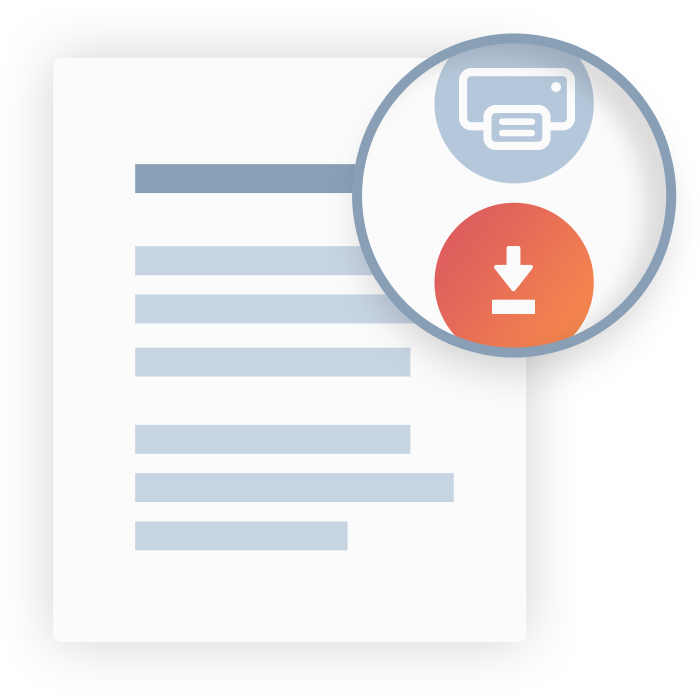


Anytime you lend money, whether to a person or business, consider using a promissory note. A more formal alternative to a handshake or a napkin "IOU," a promissory note provides proof of the loan and contains terms describing how the borrower will repay the amount owed.
A Promissory Note is a legally-binding document that establishes a debt relationship between two parties — a lender and a borrower. A Promissory Note is commonly used to describe the repayment obligations of student loans, car loans, and mortgages. However, you can also use it for something as simple as lending your friend a few hundred dollars.
Promissory Notes have the notable distinction of also being a financial instrument. As such, and under the right circumstances, the issuer of the note may have to comply with securities laws. In terms of how enforceable they are in a legal setting, Promissory Notes are somewhere between an IOU and a structured loan agreement.
Although there are several types of Promissory Note, they fall within two broad categories. Secured Promissory Notes establish a collateral asset or assets that can be seized by the lender if the borrower doesn't pay back the loan. Unsecured Promissory Notes give no claim to the lender over the borrower's assets if they fail to repay the loan.
Depending on your state, a Promissory Note may also be known as:
Loan Agreement
IOU
Note Payable
Demand Note
Commercial Paper (in specific settings)
Use a Promissory Note whenever you want to borrow or lend money simply and without professional legal guidance. For more complex transactions, you might want to use a more structured legal document, like a Loan Agreement. Either way, you should never enter a debt relationship without some sort of foundational document.
Here are some situations when it is advisable or required to create a Promissory Note:
Real estate loans, mortgages, or property down payment debt
Personal loans between friends, family, or colleagues
Motor vehicle loans
Commercial, business, or investment loans
Student loans
Create your own documents by answering our easy-to-understand questionnaires to get exactly what you need out of your Promissory Note.
Laws vary by location. Each document on 360 Legal Forms is customized for your state.
All you have to do is fill out a simple questionnaire, print, and sign. No printer? No worries. You and other parties can even sign online.
You can structure a Promissory Note in many different ways. With 360 Legal Forms, you choose exactly what terms and stipulations you want to include. With our proprietary form generator and extensive library of attorney-vetted legal forms, we'll put together a Promissory Note that suits your needs.
The process is fast and easy. Just fill out our questionnaire, then download your form as a PDF or Word document from your secure online account.
To create your document, please provide:
Lender: The full name and address of the person providing the loan.
Borrower: The full name and address of the person receiving the loan.
Principal: The amount of money in question.
Interest: The interest rate, if any, that will be charged on the principal.
Payment Plan: How the loan will be paid back (by a certain date, payable on demand, or due on demand).
Default Conditions: What will happen if the borrower fails to pay back the loan under the agreed-upon terms. This should also include who will bear the costs of legal action if it becomes necessary.
Governing State: The state laws that will apply to the Promissory Note.
Security: Any assets that will be used as collateral.
Dispute Resolution: How disputes arising from the Promissory Note will be settled. Typically, conflicts are resolved either through arbitration or the court system.
Connected Agreement: Other agreements connected to the Promissory Note.
Acceleration: A section of a loan contract that allows the lender to require a repayment of the remaining loan under special circumstances.
Collateral: Something of value pledged by the borrower that the lender can possess if the loan isn't paid.
Amortization: How a loan is spread out over fixed payments. This determines what portion of each payment goes towards the interest and what towards the principal.
Surety: A person or entity that takes responsibility for the debt if the original borrower cannot or will not pay it back.
Default: The condition of failing to repay a loan under the terms specified in the Promissory Note.
To be valid, a Promissory Note must be signed by the borrower and the lender.
In most cases, Promissory Notes don't need to be notarized, but some jurisdictions do require it. Check your local and state laws to verify signing requirements. If the Promissory Note requires notarization, it must be signed by both parties in the presence of a notary public and include the notary's signature.
You don't need to file a Promissory Note with any state or local agency. The borrower and the lender should each keep a signed (and notarized, if required) copy for their records.
However, if you intend to use the Promissory Note as a financial instrument, different rules apply. To transfer a Promissory Note, you will have to satisfy various state laws. In that case, consult an attorney to make sure you comply with regulatory oversight in your jurisdiction.
Yes, there are several types of promissory notes. The difference between them depends on due dates and payment structure.
Don't worry if this is a bit confusing. When you get your Promissory Note through 360 Legal Forms, the correct form will be automatically generated for you based on your answers to our simple questionnaire.
An event of default is a condition which, if met, will cause the principal and all accrued interest to be made immediately due and payable. Such events include:
Both documents serve as evidence of a debt between two parties, but a Promissory Note is generally less complex than a Loan Agreement.
A Loan Agreement is more formal and usually easier to enforce in a legal setting. Promissory Notes are still legally-binding, but a loan agreement might be a better option if there are multiple borrowers or if the loan involves a large sum of money.
No. Promissory notes do not need to be notarized. The borrower only needs to sign the document to make it legally enforceable. A witness may be helpful if one party contests the note, but a notary is not necessary. However, the use of a notary ensures that no one challenges any signatures later and is a secure way to firmly establish the effectiveness of your document.
No, collateral can be pledged in any amount. The only intervening factor is whether the borrower and the lender agree on a specific asset to be used as collateral.
If the collateral's value exceeds the debt, and the lender recovers more than the outstanding balance of the loan, the surplus amount is returned to the borrower or other debtors.
There is no set interest rate for Promissory Notes, but rates cannot be chosen frivolously. Most states have usury laws to ensure interest rates don't exceed a reasonable limit.
A good place to start is by checking one of the many rate calculators offered on most major banks' websites. You can also choose to charge no interest if the loan is for a friend or family member.
If a Promissory Note is not backed by any collateral, there's no material asset you can seize in lieu of payment. However, that doesn't mean you're out of options.
Even unsecured Promissory Notes should have a clause establishing actions that will follow a default. Typically, these actions may include hiring a collection agency or taking legal action through a civil suit.
Our exhaustive library of documents covers your personal, business, and real estate needs with all of your DIY legal forms.
Create professional documents for thousands of purposes.
Make unlimited documents and revisions. Sign online in seconds.
Our documents are vetted by lawyers and are applicable to all 50 states.